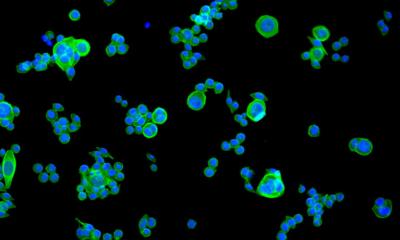CRC-report shows urgent need for action
Limited public and political awareness of colorectal cancer (CRC), few formal screenings programms, delayed access to treatment - the first cross-country report on the management and funding of colorectal cancer (CRC) reveals an urgent need for action to improve the survival of patients in Europe and Australia.

Prof Panos Kanavos, lead author of the report and senior lecturer at LSE, said "This report is the first to give healthcare providers, policy makers and patient groups the detailed evidence needed to create and deliver sustainable standards and plans that will ensure people throughout Europe affected by this devastating cancer have equal access to a better future."
The report urges prioritization of this potentially preventable and curable cancer through greater pan-European co-operation and delivery of a concerted, integrated prevention programme, including screening and treatment of CRC. Member states need to give CRC a more significant voice within the global community.
Commenting on the report, Jola Gore Booth, Founder of europacolon, the only pan-European advocacy organisation dedicated to CRC said, "Compared to other high incidence cancers CRC has been largely ignored. That is why we see so much variability around Europe in the diagnosis and care of people with this common and highly treatable cancer. Now that we have a clearer understanding of where action needs to be taken we need to work towards saving even more lives."
Key study results
Seventeen countries in Europe in addition to Australia are included in the report. A 'scorecard' of positive indicators (factors which improve CRC care) and negative indicators (factors which create barriers to best care) was created by the LSE team to show what countries do well and where they have room for improvement.
Overall only a minority of countries score over 50 per cent for positive points (including Denmark, France, Germany, Italy, Netherlands, UK and Australia) although none scored over 75 per centhowing that each country has room for improvement.
Data collection
Cancer care data collection remains poor in Europe. There are significant deficiencies in terms of gathering and recording cancer statistics - as well as CRC-related healthcare expenditure. This means that estimating healthcare requirements for future colorectal cancer patients becomes difficult and planning for the right level of service delivery prone to major errors.
Screening policies and prevention:
- CRC is one of the few cancers amenable to cancer screening activities. If detected at its pre-cancerous stage, CRC can be prevented. Despite these facts and in addition to rising numbers of people with CRC only a minority of countries participate in formal screening for CRC (where an eligible population is invited for testing) and some countries have no CRC screening initiatives at all.
- Of further concern is the availability of endoscopy (use of a long, flexible tube with a light and a camera lens at the end to examine the inside of the colon) as positive screened tests must be investigated further.
- To date only a limited number of countries have CRC-specific patient groups and few have active Government driven campaigns which further reduces the visibility of this cancer to the public and policymakers.
Treatment:
- Treatment for CRC consists primarily of surgery, often supplemented by chemotherapy and radiotherapy in rectal cancer. All countries reported issues with access to all types of CRC treatment modalities.
- Treatment guidelines are essential for evidence-based practice towards CRC however many countries do not have guidelines for CRC and only half of the countries with guidelines have policies in place to monitor how they are used.
- Overall the evidence on the use of targeted drug treatments which can improve survival for patients with advanced CRC suggests that only limited numbers of eligible patients have access to these novel therapies.
Surveillance (follow-up):
- Follow-up of patients, both those treated for CRC and those treated in the pre-cancerous stage is important to detect any recurrence of disease and will increase the likelihood of a cure and thus increased survival. Currently there are large variations in follow-up practice and limited monitoring of patients across countries.
Professor Richard Sullivan, Chairman, European Cancer Research Managers Foundation and co-author of the new report concludes, "This first ever cross-country study delivers a wealth of data that give a clear mandate for change in the way many countries tackle CRC. Whilst outcomes have been improving for many CRC patients many deficits in the delivery of care - adherence to evidence-based guidelines, lack of screening programmes, the use of sub-optimal treatment whether surgical or chemotherapeutic - remain and must be urgently addressed."
07.07.2008





